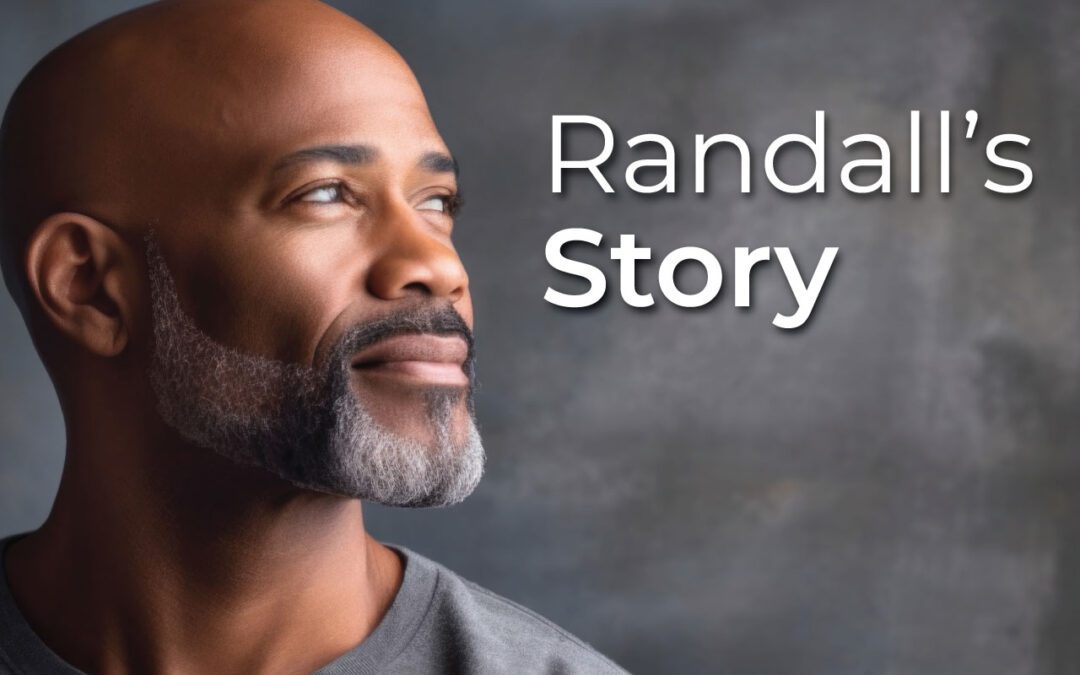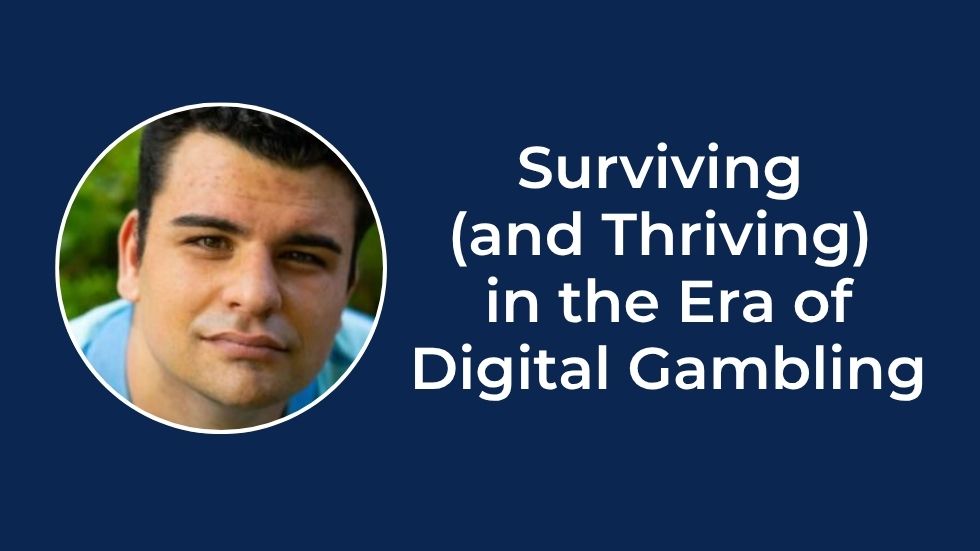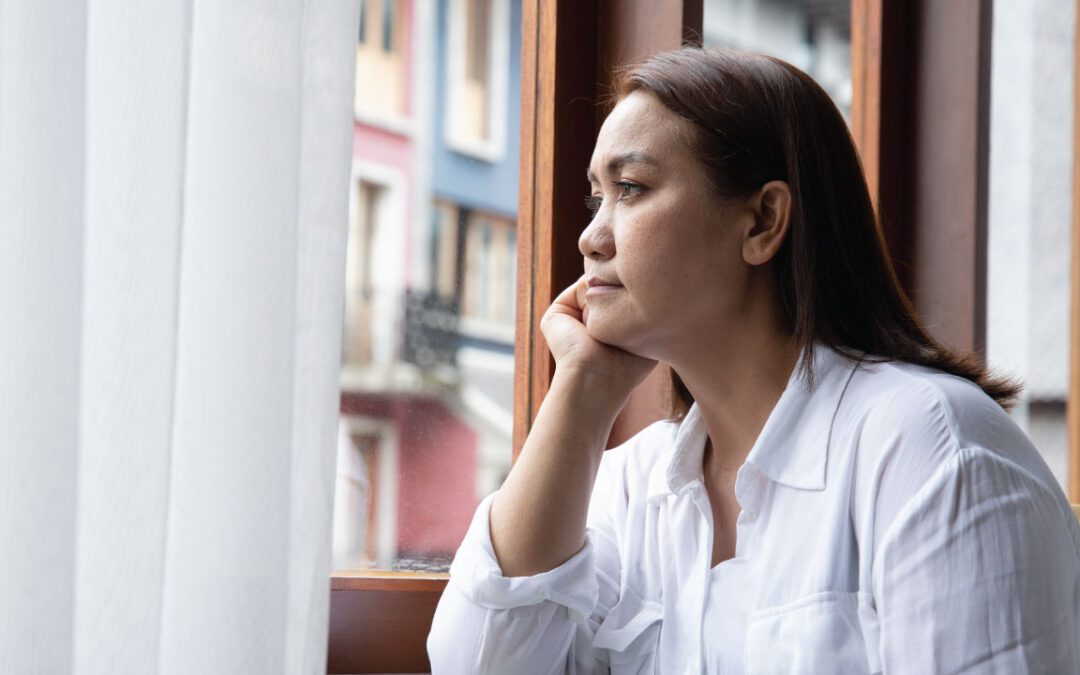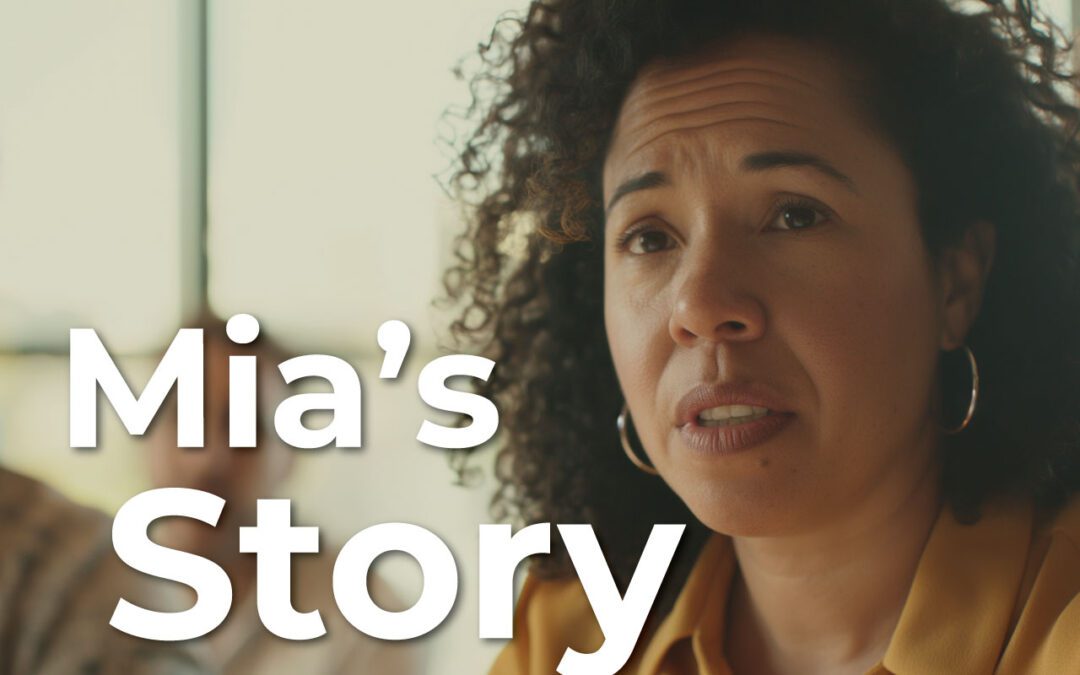
Dec 17, 2025 | HELP, PROBLEM GAMBLING, RECOVERY, STORIES
I’m 42 years old, and I never thought gambling would take over my life the way it did. Growing up, I played lotto tickets occasionally, but it was harmless, nothing more than a little game. I could walk away without a second thought. Gambling didn’t become a real problem until about 10 years ago, and even then it wasn’t because I suddenly developed a taste for it. It was because of a medication.
I was diagnosed with bipolar disorder and put on a drug called Latuda. At the time, I didn’t know that one of its rare side effects was compulsive gambling. It’s right there in the warnings, but no one ever told me. Looking back, it feels like a switch flipped in my brain. All of a sudden, I couldn’t stop.
Poker and electronic machines became my games of choice. Omaha, Hold ’Em, slots and electronic pulltabs, which were a real curse for me. I could be up thousands of dollars, but by midnight it was gone. Friends and family would urge me to cash out, but I couldn’t.
The first time I realized I was addicted to gambling was in 2016. But I didn’t talk to a therapist about it until years later. By then, gambling had already destroyed so much of my life. It pushed me into doing things I never imagined myself capable of. I borrowed money I couldn’t repay, stole from people I loved and even stole credit card information from a friend on her deathbed.
My addiction led me to commit aggravated armed robbery. I was preparing to go to treatment at Project Turnabout, waiting for medical records to clear, and in the middle of that chaos I made a bad decision. I got caught and went to prison for 33 months. I asked the judge to send me to treatment instead, but he wouldn’t.
There are no real gambling programs in the prison system, and I struggled in there. Gambling is everywhere—sports bets, high-stakes spades games, etc.—with considerable money moving through canteen accounts. The system hides it from the outside world, but it’s real. I even talked with a chaplain about starting a GA group inside the prison. He told me, “If you can find a volunteer, we’ll do it.” But no one ever stepped up.
Since getting out, I’ve been working with a counselor through Club Recovery. I’ve had stretches of abstinence—four months clean at one point—but I’ve struggled too. I even put Gamban on my phone to block gambling apps, but then I bought a new phone so I could gamble again. That’s how strong the pull can be. But I’ve realized I can’t be a hypocrite. If I want to help others, I have to stay clean myself.
I’m starting a new Gamblers Anonymous group in Little Falls. Zoom meetings didn’t work for me—they didn’t feel personal enough. I wanted a place where people could sit down face-to-face, look each other in the eye and admit what’s really going on. There’s an epidemic of gambling up there. People buy pulltabs by the box, yet most don’t think of gambling as a real addiction.
That’s bullshit. I know firsthand how destructive it is.
Starting the GA group wasn’t easy. I had to call GA International, get a starter kit, work with the library to secure space, put flyers up in hospitals, bars, even in the local paper and radio. But it matters. These programs hold me accountable, and hopefully they’ll give others the same chance.
I’ve thought about suicide from time to time. But one day, a driver told me about his best friend who killed himself because of gambling. Hearing that cracked me open. I teared up in the car and knew it was time for me to step up—for myself, for others and for my family.
Thanks to gambling, I’ve lost a lot—money, relationships, trust. Some of those losses I’ll never get back. But I’m trying to move forward. I want to bring GA into prisons. I want to write a blog about addiction and suicide. I want to make sure others know they’re not alone, and that gambling addiction is every bit as real and dangerous as alcohol or drugs.
I can’t change the past, but I can use it. If sharing my story helps one person stop before they lose everything, then it’s worth it.

Nov 19, 2025 | SPORTS BETTING, STORIES
By Saul Malek
Read the original article on the BASIS here.
Editor’s note: This op-ed was prepared by Saul Malek, a professional speaker specializing in gambling addiction prevention and education. Saul developed a gambling addiction as a college sophomore, losing money, time, relationships, and nearly his life. Since entering recovery in 2019, he has become an in-demand speaker, sharing his story with schools (both high school and college), athlete mental health organizations, suicide prevention groups, parent groups, popular news outlets (including the New York Times, National Public Radio, Public Broadcasting Service, and Dallas Morning News). He has keynoted conferences including the Connecticut Council on Problem Gambling annual conference, the Wisconsin Council on Problem Gambling annual conference, and Mental Health America Greater Dallas Adolescent Symposium. He has appeared on Dr. Phil Primetime and was a TedX speaker at the University of Alabama at Birmingham. This op-ed is part of our Special Series on Addiction and Technology, which was funded by a research and consulting contract with DraftKings.
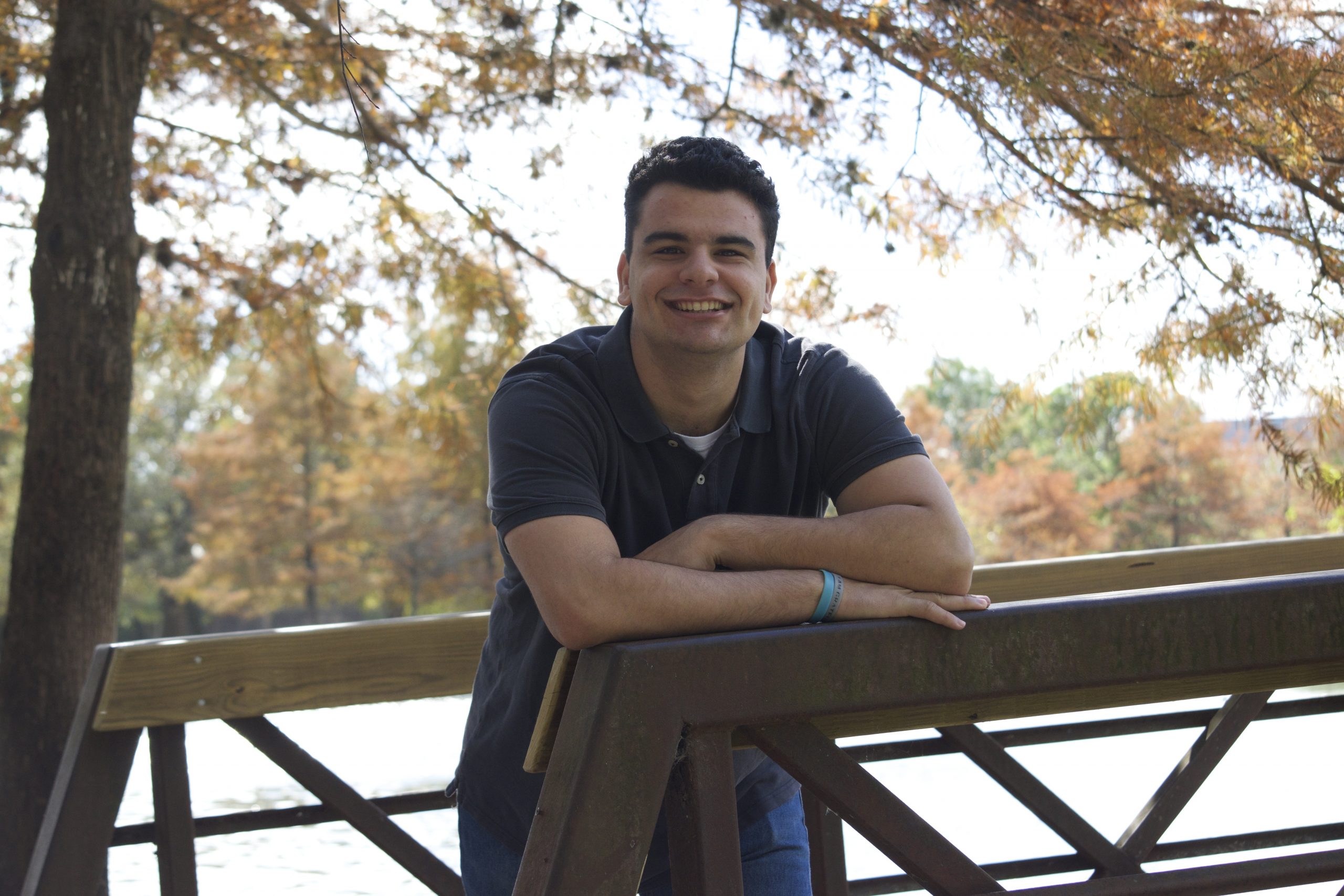 The most popular athletes in 2017 included LeBron James, Tom Brady, and Simone Biles. It was a different star’s name, however, that caught my attention that year- Tatjana Maria, a veteran on the women’s professional tennis circuit.
The most popular athletes in 2017 included LeBron James, Tom Brady, and Simone Biles. It was a different star’s name, however, that caught my attention that year- Tatjana Maria, a veteran on the women’s professional tennis circuit.
Sometime during the fall of 2017 Maria was playing in a tournament. Who she played against? I don’t know. Where the tournament was? Couldn’t tell you… I don’t even remember what date the match was on.
What I can tell you, with certainty, is this: I was sitting on the toilet in my college dormitory, preparing for a night out with friends, when- I logged on to my newly created online sportsbook account and saw, to my shock, that I could bet on tennis. Before my bookie created the account for me, I’d text him the games I wanted to bet on. Eventually, he grew tired of the texts and thought of a solution: “I can make you an account online,” he said “where I give you a line of credit and you can bet on whatever you want, whenever you want. At the end of the week we’ll square up through Venmo.” I didn’t know I could text, “Hey, give me $100 on Tatjana Maria!” But now, Tatjana Maria (and the never ending world of online gambling) came to me. I was just getting started. Soon, foreign tennis matches wouldn’t be just a mere bathroom pastime- they became an obsession dominating every moment of my life.
For almost two full years, my entire life revolved around gambling. Full games became live bets on halves, quarters, even individual points. Classes skipped, lies told, sleep lost, money chased.
The strangest thing of all? The progression of my addiction all seemed so normal.
Your Dream Life: One Click Away
You may be thinking, “There’s nothing normal about throwing your life away on obscure tennis bets.” Let me explain.
I didn’t start with obscure tennis bets. My first ever sports bet, in September 2017, when I was 19 years old, was a measly $10 wager on a baseball game.
Winning that bet made me feel like a million bucks. I wanted more. Text the bookie. $20 on a football game that weekend. Hey, I’m not bad at this. I should do this more often. This is like a business, tracking my wins and losses. Bookie sets me up an account online. I can bet on tennis? And darts? Increased betting frequency. No more tracking wins and losses. Larger bets with a higher credit limit. Start losing more frequently. Chase losses with desperate long-shots. Lying. Debt. Loans. Bailouts. Live bets, betting 10 times on the same game. Each action made sense to me in response to the last one (at least, at the time). Only after suffering unbearable consequences could I see how off base I really was.
I take responsibility for my gambling. Yet, at the same time, I can’t help but think that the digital nature of my gambling accelerated my problem.
Firstly, as the Tatjana Maria example illustrates, the digital gambling world exposed me to markets I never would’ve known about. Additionally, the digital gambling universe desensitized me to the value of money. Typing in “500” and clicking “bet” feels a lot less real than counting out $500 in cash and carelessly risking it. Another point: ease of access. My dream world of gambling was only a click away from me at all times. Feeling down? Place a bet. Feeling a confident high? Reach into my pocket and place another bet. No waiting around, no driving to a physical betting shop.
It is easy to feel overwhelmed in the world of digital gambling. However, in my experience, there are also more opportunities than ever to be connected with help.
Getting Your Life Back: One Click Away
I first sought help for my gambling problem in August of 2018, almost a full year before I finally quit gambling. I attended in person Gamblers Anonymous meetings, by far the youngest member at only 20. GA has been a lifesaver for me, I still attend meetings to this day. But in those early, inconsistent days where I was yet to hit a “bottom” in my gambling, the internet is what kept me hanging on.
Reddit played a pivotal role in keeping me connected with others in recovery. Through this online platform, I made close connections on the “problem gambling” subreddit, often with members close in age. Reddit introduced me to Jeff, a prominent voice in gambling harm prevention, who worked to establish Skype (pre-Zoom) meetings for people struggling. Just as the digital gambling landscape was available 24/7, so was my Reddit connection.
Professional help for a gambling problem is not always easy to find. Fortunately, my parents connected me with a therapist specializing in gambling addiction who offered virtual sessions. Visits with this therapist were essential in formulating a payment plan with my creditors, easing pressure that otherwise may have led me back to gambling.
Now professionally involved in gambling harm prevention, I can’t imagine broadcasting my message without the power of the internet. LinkedIn, Instagram, YouTube… all essential. How cool is it to share ideas with prevention specialists in Africa? Very cool… and also possible!
In Closing
Technology, like many tools, can be used or abused. It is important to not only see technology’s downsides, but also the opportunities for prevention, recovery, and treatment that are afforded by the digital gambling landscape. It is practically impossible to avoid digital connection these days- thus individuals should be taught to best maximize their tech use for positive outcomes.

Jun 18, 2025 | PROBLEM GAMBLING, RECOVERY, STORIES
I was seven the first time I gambled. We were visiting my grandmother, and the older ladies in her building taught me how to play rummy—for nickels. We played for six hours, and by the end of the night, I’d taken all their money. I remember asking my parents the next day when I could gamble with them again.
There was a lot happening at home around that time. My sister’s teenage pregnancy caused constant tension and uncertainty. Playing cards with my grandmother gave me a break from the chaos.
When I turned 18, I went to the local casino with friends and my dad. I blew through my paycheck in minutes. My dad handed me $50 for my birthday so I could keep playing. I ended up winning some money back. That was cool.
Later, after dropping out of college because I felt homesick and unsure of what I wanted, I became a blackjack dealer. I discovered a benefit for employees—you could cash your paycheck for free at the casino. On payday, I’d often stick around until I either lost everything or doubled my money.
Poker was growing in popularity then, and I got good at it. I played tournaments around the Midwest and would often stay and play more poker or blackjack afterward.
Not long after, I began experiencing serious depression. Doctors gave me different diagnoses, and I was eventually labeled bipolar. I went through intensive rehab for depression.
I got married and moved to Minneapolis, but we didn’t stay long. We returned to rural life, and I got another job at a casino. About a year into the marriage, my husband relapsed after drug treatment. I flushed his drugs down the toilet, and he tried to choke me. A coworker helped me pack up and leave.
I kept working at the casino, but my mental health didn’t improve. Looking back, I can see how gambling highs lifted me way up, and losses sank me just as hard. I attempted suicide multiple times.
After years in and out of treatment, I finally stopped going to casinos. I met my current husband and went several years without the compulsion to gamble. I could even go to a casino with friends or my husband and be responsible.
A year into our marriage, I had my first daughter. I struggled with postpartum depression and soon realized that being a stay-at-home mom wasn’t for me—I needed more social interaction. I started going to the casino in the evenings, just to get out of the house.
Eventually, I took a job as a program coordinator for a home health company. I was working 60 to 70 hours a week, often leaving before my daughter woke up and coming home after she was asleep.
A year later, I got pregnant again. My son was born with a heart condition and passed away a week after birth. That sent me into a tailspin. I didn’t want to go back to work. I went on extended medical leave and returned to therapy.
After my sessions, I’d often go to the casino. That’s when my husband first voiced concern. He asked me to talk to my therapist about it—but I didn’t.
I got another job and became pregnant again. Despite everything, I still found reasons to go to the casino. I opened a separate bank account so my husband couldn’t see how much I was spending—or losing. He started to worry about our finances.
About three years ago, I lied to my husband so I could spend the day gambling. I stayed at the casino for 14 hours, lost everything in our accounts and maxed out all of our credit cards, including the ones he didn’t know about. That night, I realized this was more than depression. I remembered hearing the term “compulsive gambling” when I worked at casinos but had never imagined it applied to me. I even called the 800 number posted on the casino door—but hung up when someone finally answered.
A few weeks later, my husband found a W-2G form showing gambling winnings I hadn’t told him about. He started asking more questions about our finances. I still didn’t tell him I had drained our 401(k) or spent $29,000 worth of insurance checks we got for roof repairs as gambling money. I thought I could double it. I didn’t.
I kept losing. Then one night, before heading out, I wrote my husband a letter telling him everything. I left it on the counter with our credit cards and checking info. I told him I’d understand if he didn’t want to try anymore.
He read the letter after putting our kids to bed. He called me and told me to come home so we could talk. It was the longest night of my life. I felt like the worst person in the world.
That Sunday, I went to my first GA meeting. We researched treatment options and found the Vanguard Center for Gambling Recovery 30 miles away. I called them the next day and signed up.
I completed a 30-day inpatient program. It was the hardest and best thing I’ve ever done—especially being away from my kids with only limited contact.
Since then, I haven’t gambled. I attend two to three GA meetings a week and stay connected with others in recovery. I even went to the first international GA conference since COVID. I’ve found peace among people who understand what I’ve been through.
Now, life is boring—and that’s a good thing. Boring means peace, stability, and being present for my family.

Mar 4, 2025 | PROBLEM GAMBLING, RECOVERY, STORIES
As I look back on the last several years, I can see times when my husband’s behavior was odd, when things didn’t seem quite right. At the time, however, I thought it was just him having a love for sports and it was his hobby.
But after I received a call from a detective in 2023 telling me about things that my husband had done, my world was turned upside down.
I have been with my husband for 14 years. I knew that he was into sports gambling since his college days but hadn’t thought much about it.
Three years ago, he had a significant win with one of the sports gambling accounts. I said, “Great! Let’s take this win and move on so it doesn’t become a problem” From that point on, I always tried to have conversations about the list of things we could do and which ones to prioritize. But he didn’t want to make concrete plans, always saying something like, “Yea, yea … we can talk about it later.”
About a year later, a friend of mine said she wanted to talk with me. She informed me that my husband had another big win, which he hadn’t told me about. My husband’s family also informed me that he’d borrowed money from them. This was the start of when things started to fall apart.
Trips to the mailbox became traumatic as late bill notices became common. Our power was shut off from not paying the electric bill. My husband’s mother started getting calls from debt collectors. I didn’t understand all of this, as I assumed we had all this money going back to his big win.
Several months after that, I received the call from the detective that changed my life. He told me my husband had committed some illegal acts over the last year. I was shocked. I could’ve never imagined my husband going to such extreme lengths such as stealing private information to obtain money.
The next half year was filled with uncertainty. While we waited to see what legal charges might be coming and the implications, my husband kept getting new jobs — and kept getting fired. Somehow, people kept finding out and news would spread to his new employers. We were in survival mode, not knowing what our future looked like.
During this time, my husband started going to Gamblers Anonymous meetings while I started attending Gam-Anon. Gam-Anon became my rock through all of the uncertainty. It’s taught me that you have to take one day at a time and that you can only control what you can control.
Charges finally came. My husband was convicted of six felony charges, including identify theft and business theft. He was sentenced to nine months in jail and five years’ probation. He ended up being eligible for electronic monitoring instead of jail time, still our lives have been forever changed.
Almost as bad as the charges were how we were treated at the hearings. My biggest fear was that everyone in our small community would find out. Many showed up at the hearings, and I remember how upsetting it was when someone laughed out loud when “gambling addiction” was mentioned.
The emotional impact of this has been immense. I was devastated and kept it to myself for almost five months, only telling a few people I could trust. I remember crying in the bathroom between the classes that I taught. It breaks my heart that my husband will never be able to practice in his field again.
While my trust in him has been very slow to come back, I’m optimistic about the future. I’m able to handle things better. I set boundaries, control finances and always know where my husband is.
For those reading this who have been affected by someone with a gambling problem, I would say this: When you’re in the thick of it and scared, know that things will eventually get better, and take advantage of the resources that are available, the best being sharing your story and hearing others stories. There is hope.

Nov 12, 2024 | PROBLEM GAMBLING, STORIES
When I look back on the ups and downs of my struggle with compulsive gambling, I sometimes think back to the first time I was bailed out of my debt. When my parents learned about my gambling problem, they asked how much I owed. They subsequently paid off my debts, and while that solved the immediate anxiety I had about money, it did nothing to help me with a gambling problem that I would struggle with for the next 20 years.
There was no history of gambling in my family. While I remember cake walks as a kid, when you might win something, and the times my grandmother would let me deposit a ticket for a raffle, that wasn’t anything serious. I also remember my father placing minimal bets on horses at Ascot, but I was just thrilled to be there and couldn’t have cared less about betting.
My compulsive gambling started after I went with my friends to casinos around 1990. This was when gambling became more available as casinos opened on reservations. It was probably about three years later — when I’d taken time off for surgery, didn’t want to be home for any work calls and started going to casinos for an escape —that I started to gamble compulsively, though I didn’t recognize it as that at the time.
At first, at the casinos, I generally played cards but at some point I moved to playing the machines. They were faster paced and I found them more exciting. Eventually, I started going to the casinos more often, usually alone, and would gamble more each time.
This was also at a time when it was easy to get credit cards and I quickly racked up a lot of debt taking cash advances on credit cards. Eventually, it became difficult to pay my bills. Shortly thereafter, I became depressed and started to have suicidal thoughts. As I drove around the Twin Cities, I’d look at a bridge abutment and think that I could drive into it and that nobody would ever know about my gambling behavior. But I figured if I didn’t kill myself, things would just be worse.
The suicidal thoughts spurred me to seek help. I met with a behavior health professional, who suggested I attend a Gamblers Anonymous (GA) meeting. At the time, I had no idea there was such a thing as a compulsive gambler. I remember breaking down and crying at my first GA meeting appreciating how sympathetic and empathetic everyone was. They encouraged me to keep coming to meetings.
It was at this time when my parents learned of my gambling problem — and gave me money to settle outstanding debts. Yet even with the bailout, my getting professional help and attending GA meetings on and off, I continued to gamble — and continued to rack up more and more debt.
By 2007, my employer became wise to my manipulation of expense reports so that I could pay off my increasing debt. It was embarrassing to confess what I’d done, particularly given that I was an expert at my job and had a reputation for being responsible and never doing anything wrong. I ultimately quit my job in lieu of being fired. A friend drove me to Vanguard Center for Gambling Recovery two days later. I went back to GA for a year and participated in monthly meetings at Vanguard. I stayed away from gambling for a year.
But by the next year, I was back to gambling and not going to GA meetings. Over the next few years, things worsened. I kited funds until the banks caught up with me. Creditors came after me and, along with the IRS and the state of Minnesota, garnished my wages. My townhouse was foreclosed in 2012, and I began dipping into my 401K to make ends meet.
By 2015, I’d lost track of who I owed what, and I wrote a bad check at a casino. Rather than being prosecuted I was ordered to attend a budgeting class. I remember really wanting to tell the judge that I didn’t have a budgeting problem, but a gambling problem!

Aug 7, 2024 | RECOVERY, STORIES
My gambling addiction has driven me to do things I never thought I’d do: write bad checks, max out credit cards and make up stories about why I needed to borrow money from my family. But most upsetting to me was that my addiction caused me to steal from my parents’ retirement accounts.
That’s really the point at which I knew I needed to get help.
It wasn’t always that way. The first time I gambled was when I went to a casino when I was 18. I’d go a few times a year with friends and family. It was a fun thing that we did together and I never had an issue.
Then, when I was in my late 20s, I started going to the casinos by myself as a way of dealing with my feeling embarrassed about being without a significant other when all my siblings were getting married and having kids. It allowed me to tell everyone I had something to do so they wouldn’t feel sorry for me. They didn’t know I was alone.
I began going every weekend and not just to spend three or four hours. I’d sometimes spend the whole night. Then I started going during the week, and would often change clothes in the car on my way to work from the casino.
My money started to run out, and that’s when I began to max out my credit cards and write bad checks. I learned about ways to get money in which to gamble, including payday loans.
I knew I had to get away from gambling because I’d end up in jail for writing bad checks. I prayed that death would take me away and felt like I was such a loser.
I thought a change of scenery would help me so I moved to Montana to be with my sister. At first, I didn’t gamble, partly because I didn’t have a job. Then I started working and making money and began to venture out from my sister. I learned that bars, restaurants and gas stations had casinos, including Keno, which I had never played before. I started doing that more and more on my way home from work.
I decided to end my time in Montana, partly concerned that my sister would learn what I was doing with my time and money because it was a small town. I called my old boss in back in Minnesota and lucked into a job.
But I wasn’t back in Minnesota for more than a week before I was back at the casinos. I had worked to clean up my debts but now I was going right back into it.
About six months later, I did what I could never have imagined doing. I waited for my parents to leave the driveway as they were heading out of town. I went into my mother’s bedroom and opened up the checkbook for their investment account. I wrote a check out to myself. My handwriting was very similar to my mother’s.
